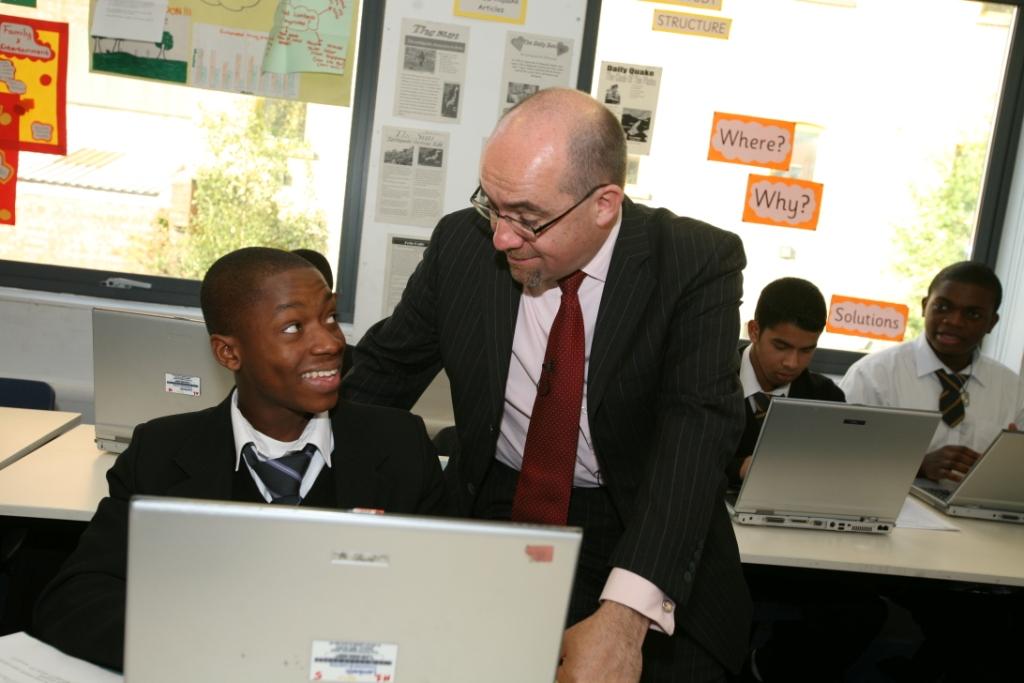Government outlines next steps to ensure broadband access for every child

Jim Knight, Schools Minister, has outlined a £30.3m package to ensure every child has access to a home computer and the internet for their college and school work.
The next step in the Government’s long-term ambition to close the digital divide includes a year-long pilot scheme in Suffolk and Oldham; a quality-badge scheme for approved home access suppliers; and funding for local authorities to target specific groups of children currently without a computer or broadband at home.
Mr Knight said: "Many families are having to tighten their belts in the current economic climate – so it is right that we help those that need the most support. We cannot let this reinforce social and academic divides and put children in low income families at a further disadvantage.
"But bridging the digital divide is not just about giving parents who cannot afford home IT a financial leg-up – it is about selling the educational benefits of home computer and internet access far better to those that can afford it."
Last month, Gordon Brown, Prime Minister, announced a £300m programme to make sure every five-to-19-year-old has home access by 2011. The move is set to be implemented across the the nation next autumn to support the around one million children who still don’t have access to broadband at home. It forms part of Next Generation Learning, which is run by Becta, the Government agency in charge of IT for learners, and promotes the best use of technology in learning.
Steven Crowne, chief executive of Becta, said: "There’s no question that technology plays an increasing part of our everyday life at home and school. What we need to ensure is that every learner has an equal chance to tap into the benefits of the internet to enhance their learning – and the Home Access programme seeks to do just that, by offering this opportunity to all learners.
"There will be financial help for those eligible families who are struggling to buy the equipment and practical help for families to use the internet more. There’s clear evidence to show that effective use of technology really does boost a child’s achievement."
Oldham and Suffolk will start pilot schemes in February next year, meaning up to 20,000 seven-to-18-year-olds from low income families, eligible for free school meals, will qualify for home access financial support. The grant will pay for the cost of an approved home access package including a computer or laptop; associated broadband access for one year; basic software; and three years of technical support.
Councillor Patricia O’Brien, Suffolk County Council’s Portfolio Holder for Children Schools and Young People’s Services, said: "I am delighted Suffolk has been selected to take part in this innovative and exciting pilot. The project will help to bridge the "digital divide" for children in Suffolk who do not have a computer at home or access to the internet. The use of technology in education is developing fast and this is a unique opportunity for Suffolk to be in the forefront. Every child in Suffolk is going to have good access to the internet to support their education."
Councillor Jackie Stanton, Deputy Leader of Oldham Council, said: "I am delighted that Oldham has been chosen to pilot the Home Access programme. This programme will transform children and young people’s learning in Oldham and provide more opportunities for parents and carers to be actively involved in their children’s education.
"Oldham’s children and young people are the key to our Borough’s future and by giving each of our young people good access to technology, we believe they can be more inspired to learn and have the skills they need to live successful lives."
Mr Knight added: "There has to be a culture where families see home access is as important as making sure their children have pen, paper and calculator at school. The bottom line is that having home access to the internet or a computer is no longer an optional extra for school work – it is fast becoming essential.
"Schools are revolutionising how they educate faster than many families realise. There is no substitute for good classroom teaching but day-to-day school work is increasingly web and computer based – and it is clear that students get better results where technology is used effectively at home to study, research and communicate.
"It’s not up to the schools to lead this – it’s down to government, councils, industry and the voluntary sector to pull in the same direction and make low-cost home access a reality."











Responses